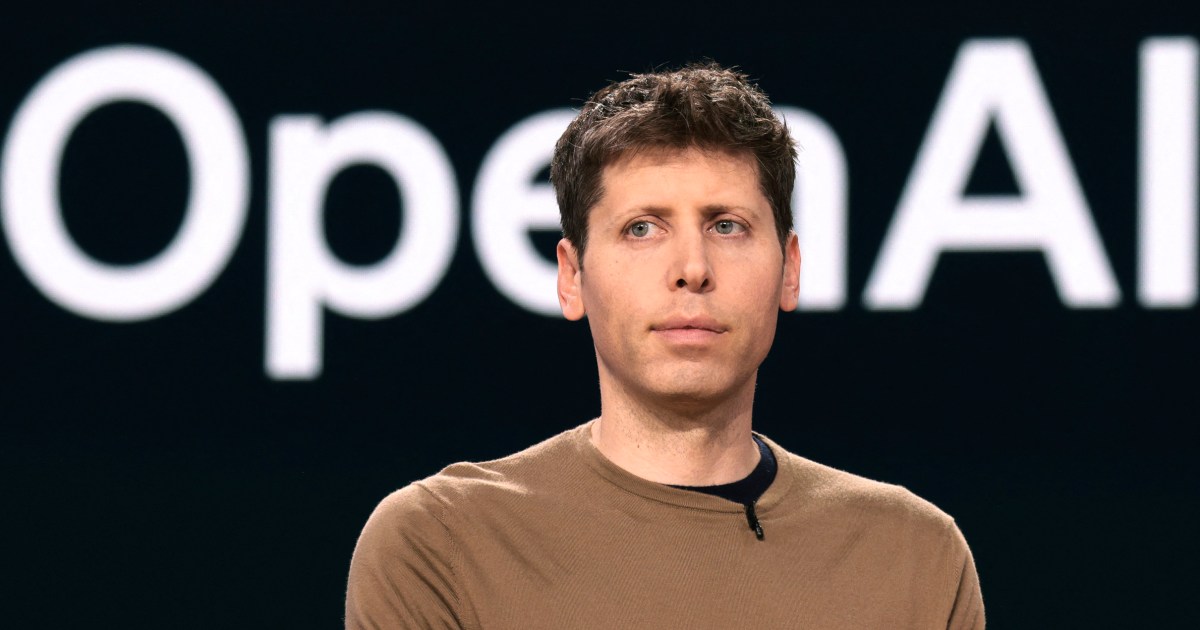OpenAI says it was founded with the goal of benefiting humanity. But several nonprofit organizations that say the artificial intelligence behemoth has strayed from its mission allege that it has recently used intimidation tactics to silence them.
At least seven nonprofits that have been critical of OpenAI have received subpoenas in recent months, which they say are overly broad and appear to be a form of legal intimidation. All of the subpoenas are part of a legal battle between OpenAI and tech titan Elon Musk, with OpenAI suggesting that the subpoenaed nonprofits are somehow connected to Musk.
The organizations that received subpoenas had signed or organized open letters and petitions critical of OpenAI’s ongoing efforts to restructure from a nonprofit to a for-profit public benefit corporation. In one case, a subpoenaed nonprofit had also sponsored a California bill that imposed the first wide-ranging regulations on leading AI companies like OpenAI.
Six of the nonprofits were not involved in the lawsuit between OpenAI and Musk before the tech company brought them into it by issuing the subpoenas, and the remaining nonprofit had filed a supporting brief in the case but says it had not engaged with Musk. Three of the subpoenas, issued to the San Francisco Foundation, Ekō and the Future of Life Institute, have not been previously reported.
The nonprofits say the subpoenas seem designed to extract private information about OpenAI’s critics despite most of the organizations having no relation to Musk or the ongoing lawsuit.
Robert Weissman, co-president of Public Citizen, a nonprofit consumer advocacy organization that has been critical of OpenAI’s restructuring plans but is uninvolved in the current lawsuit and has not received a subpoena, told NBC News that OpenAI’s intent in issuing the subpoenas is clear. “This behavior is highly unusual. It’s 100% intended to intimidate,” he said.
“This is the kind of tactic you would expect from the most cutthroat for-profit corporation,” Weissman said. “It’s an attempt to bully nonprofit critics, to chill speech and deter them from speaking out.”
The subpoenas, four of which were reviewed by NBC News, ask for a wide variety of documents and materials, including all information about the organizations’ funders and donations, in addition to all communications regarding Musk, Meta and its founder Mark Zuckerberg. OpenAI had previously expressed suspicions about Meta and Zuckerberg’s involvement in Musk’s $97 billion bid to buy OpenAI in February.
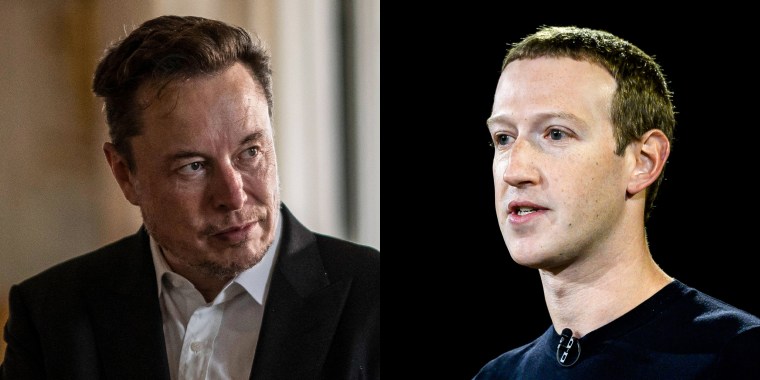 Elon Musk; Mark Zuckerberg.AP; Getty Images
Elon Musk; Mark Zuckerberg.AP; Getty Images
The subpoenas also ask for “all documents and communications concerning the governance or organizational structure of OpenAI.”
OpenAI said in September that its conversion to a more traditional for-profit company would “enable us to raise the capital required to accomplish our mission.” The change is seen as a key step before the company could be publicly listed and would allow investors to hold valuable equity in the for-profit instead of just receiving a slice of profits.
Critics of the conversion argue such a change could allow OpenAI, now the world’s highest valued startup, to pursue profit over its charitable mission.
The controversy around the subpoenas exploded online Friday, as employees of several of the nonprofits alleged on social media that the AI titan’s subpoenas are hardball legal tactics that far surpass normal legal action and are often irrelevant to the ongoing Musk lawsuit. The allegations, which included photos of several of the subpoenas, led to several prominent current and former employees of OpenAI publicly criticizing its actions — highly unusual for the tight-lipped company.
“This doesn’t seem great,” OpenAI’s Joshua Achiam, the company’s head of mission alignment, said in an X post Friday afternoon. Achiam did not respond to NBC News’ request for comment.
Achiam reports to CEO Sam Altman and is tasked with ensuring OpenAI’s pursuit of smarter-than-human AI systems benefit all of humanity.
“We have a duty to and a mission for all of humanity,” Achiam wrote Friday. “There are things that can go wrong with power and sometimes people on the inside have to be willing to point it out loudly.”
The subpoenas and tactics at issue in Friday’s statements stem from a protracted and heated legal battle involving Musk.
Musk sued Altman, OpenAI and several co-founders last year accusing them of breaching OpenAI’s contractual duties by embracing a for-profit drive nested within its nonprofit structure, in what Musk alleged has been “a textbook tale of altruism versus greed.”
Altman and OpenAI contend that Musk, who was one of OpenAI’s early boosters and provided around $45 million to the company in its early years, is now jealous of the company’s success and is employing “bad-faith tactics to slow down OpenAI and seize control of the leading AI innovations for his personal benefit.” Musk is also the founder and CEO of OpenAI-rival xAI, which is quickly trying to catch up to other AI companies’ capabilities.
In response to a request for comment, an OpenAI spokesperson referred NBC News to posts on X from OpenAI’s Chief Strategy Officer Jason Kwon.
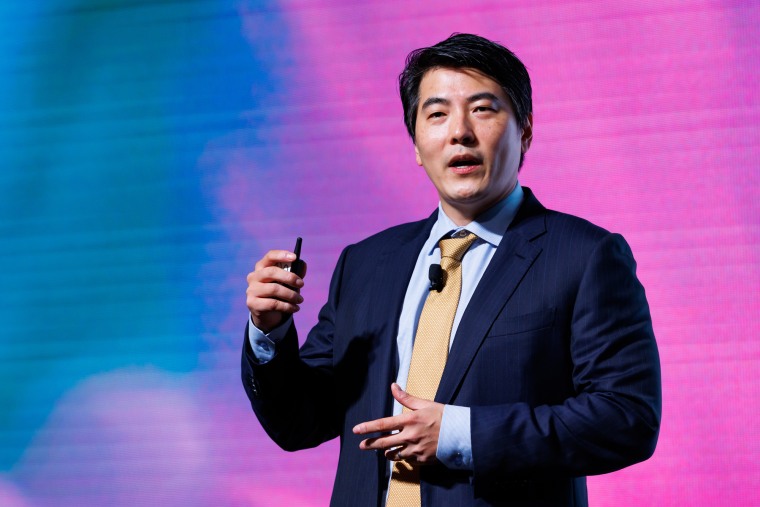 Jason Kwon, chief strategy officer of OpenAI, during a news conference in Seoul, South Korea, on Sept. 10.SeongJoon Cho / Bloomberg via Getty Images file
Jason Kwon, chief strategy officer of OpenAI, during a news conference in Seoul, South Korea, on Sept. 10.SeongJoon Cho / Bloomberg via Getty Images file
On Friday, Kwon wrote that after Musk sued OpenAI, several organizations “joined in and ran campaigns backing his opposition to OpenAI’s restructure. This raised transparency questions about who was funding them and whether there was any coordination.” The various nonprofits that received subpoenas span a range of causes, but have all been critical of OpenAI.
The San Francisco Foundation (SFF), whose mission is to strengthen communities, build civic leadership and foster philanthropy in the San Francisco area, says it has never received any funding from Musk nor has it participated in the lawsuit with Musk. SFF helped lead a petition in January asking California’s attorney general to prevent OpenAI’s attempt to restructure from a nonprofit to a for-profit entity.
Judith Bell, SFF’s chief impact officer, said that SFF has criticized OpenAI because of her organization’s focus on philanthropy. “OpenAI, an organization whose assets have been estimated in the hundreds of billions of dollars, is effectively one of the largest nonprofit entities in history. Its assets were accumulated for the explicit, charitable purpose of benefiting humanity,” she said.
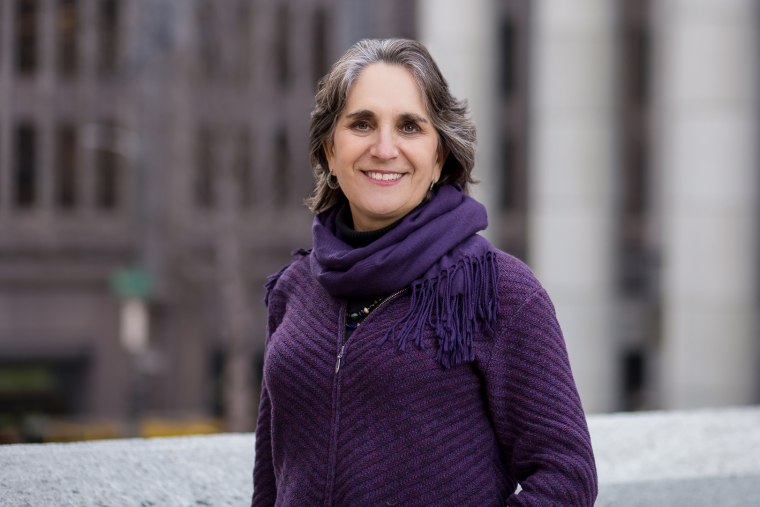 Judith Bell, San Francisco Foundation’s chief impact officer.Courtesy Judith Bell
Judith Bell, San Francisco Foundation’s chief impact officer.Courtesy Judith Bell
“SFF opposes the diversion of these immense charitable assets for private, corporate profit. We believe the law requires that the full value of these public assets must be permanently dedicated to the public good, independent of any for-profit enterprise, regardless of OpenAI’s corporate structure,” she added.
Sean Eskovitz, a litigator and former assistant United States attorney uninvolved in the Musk case and who has not spoken out for either party before, told NBC News that “the breadth of these subpoenas strike me as quite aggressive and quite broad.”
OpenAI “will have to demonstrate that the requests are relevant to an issue in the litigation,” he said. “Even then, there would be concerns given the limited or non-involvement of these third parties in the litigation, the nature of the activities that are being inquired about and the public interest in the advocacy and speech issues here.”
“There would have to be a very close look at the scope of the subpoena in order to ensure that nonparties are not being harassed, that their speech is not being chilled, and that the proponent of the subpoena is not using the subpoena for some ulterior purpose,” Eskovitz said.
Ekō, an international nonprofit organization “committed to curbing the growing power of corporations,” had initially shared its concerns about OpenAI’s corporate structure with the company in early April before launching a public campaign critical of the organization.
Emma Ruby-Sachs, Ekō’s executive director, had heard that other advocacy organizations were receiving subpoenas over the past few months. “We knew this was a tactic that OpenAI was using to try and silence opposition,” she told NBC News.
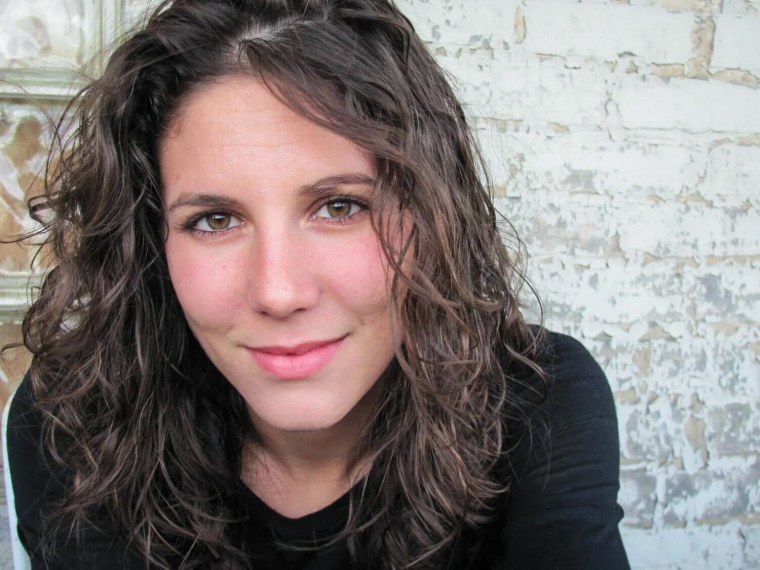 Emma Ruby-Sachs, Ekō’s executive director.Courtesy Emma-Ruby-Sachs
Emma Ruby-Sachs, Ekō’s executive director.Courtesy Emma-Ruby-Sachs
OpenAI responded to the campaign in an email, noting that it had made attempts to meet with Ekō before the launch of the campaign and raising its suspicions that Musk might have been involved in Ekō’s campaign.
In reply, Ekō’s campaign director dismissed OpenAI’s concerns about its funding: “We are not in any way supported by or funded by Elon Musk and have a history of campaigning against him and his interests.”
Given their email correspondence and OpenAI’s subsequent silence, Ruby-Sachs was taken aback by OpenAI’s subpoena in early September. “We had written to them and said we’re over 70% funded by small online donations from individuals, and we’ve run multiple campaigns against Elon Musk in the last year,” she said.
Ruby-Sachs mentioned that Ekō even ran a billboard ad in Times Square earlier this year depicting Musk as a king and advocating for him to be fired during his stint at DOGE earlier this year.
Like the other nonprofits’ subpoenas, Ekō’s was very wide-ranging, asking for, among other details, “the identity of all Persons or entities that have contributed any funds to You and…the amount and date of any such contributions.”
Such breadth surprised many commentators. Helen Toner, a former member of OpenAI’s board, skeptical of some of the company’s practices, labeled the approach as “dishonesty & intimidation tactics.”
In a post viewed almost 30 million times, Musk reshared Toner’s remark, commenting that “OpenAI was built on a lie.”
Musk subpoenaed Toner’s documents in a similar lawsuit last year.
Given Ekō’s public opposition to Musk, Ruby-Sachs dismissed the idea that Ekō could be funded by Musk to take down OpenAI. “The logical basis is so ridiculous that we have to assume this is just a tactic to scare us and get us to back off,” she said.
Ruby-Sachs said the organization prides itself on taking marching orders directly from its members, unlike a traditional policy or a lobbying group. Ekō determines its priorities in organization-wide votes in which hundreds of thousands of its members participate.
“This subpoena shows OpenAI is going after people around the world who are legitimately concerned citizens and trying to shut them up,” Ruby-Sachs said.
“OpenAI is another company, just like every other company, trying to use their money and power to pursue profits, even if it screws over the people of California and potentially all of humanity,” she said.
Ekō’s subpoena has not been widely reported before, nor has a similarly broad subpoena targeting the Future of Life Institute (FLI).
Whereas Ekō says it has no ties to Musk, FLI received at least $10 million in funding from Musk. FLI last received funding from Musk in 2021. The funding focused on AI technical and policy research, including a grant-making program aimed at “keeping AI robust and beneficial.”
According to an FLI spokesperson, “Elon has no input into FLI’s structural activities.” The spokesperson said FLI distributed Musk’s money to leading AI researchers, and a separate tech mogul gave FLI its permanent endowment as is made clear in its online funding reports.
FLI received its subpoena at the beginning of October, while FLI President Max Tegmark received an individual subpoena in late August.
“We assume the subpoena has to do with us generally calling for more oversight and transparency on the development of advanced AI and AI companies in general, which currently have zero regulation or meaningful oversight,” FLI’s spokesperson said.
In a post on X addressing OpenAI, Tyler Johnston, who received a subpoena as founder of an AI-transparency advocacy group called The Midas Project, wrote: “We’ve never spoken with or taken funding from Musk and ilk, which we would have been happy to tell you if you asked a single time. In fact we’ve said he runs xAI so horridly it makes OpenAI ‘saintly in comparison.’”
Johnston’s subpoena was previously reported in the SF Standard.
On Monday, Johnston wrote on X that the subpoena and ensuing news coverage of his involvement in the lawsuit caused insurance brokers to refuse to cover his small watchdog organization. “If you wanted to constrain an org’s speech, intimidation would be one strategy, but making them uninsurable is another, and maybe that’s what’s happened to us with this subpoena,” he wrote.
Former OpenAI research scientist Steven Adler told NBC News: “I’m surprised that OpenAI’s Board would consider these actions consistent with its nonprofit legal obligations, or that they’d feel personally comfortable with this conduct.”
Legal Advocates for Safe Science and Technology (LASST) also received a subpoena from OpenAI. Tyler Whitmer, president and CEO of LASST and a lawyer himself, was unsettled by the subpoena’s aggressive tactics, especially given his opposition to Musk.
“I think Musk is a malign influence in the world right now,” Whitmer said. “Part of my mission is to hold Musk’s xAI to account in the same way I hold OpenAI to account. It’s just that OpenAI is supposed to be better than this, while I don’t expect the same from Elon,” he said.
“It’s really clear that the subpoenas aren’t narrowly tailored to the issues of the litigation and are instead trying to leverage the litigation to get information that OpenAI is not otherwise entitled to. And that’s the best faith version of it,” Whitmer said.
Beyond its restructuring efforts, OpenAI also served subpoenas to at least one organization supporting recent efforts to regulate frontier AI companies.
OpenAI’s Head of Global Affairs Chris Lehane was publicly skeptical of California’s SB 53, a newly signed bill mandating transparency into leading AI companies’ risk-mitigation practices, before the bill was signed into law. Lehane is now attempting to shape America’s AI politics to OpenAI’s liking, bringing his dogged approach to Silicon Valley. Lehane recently helped launch a new $100 million Super PAC designed to fight against strict AI legislation.
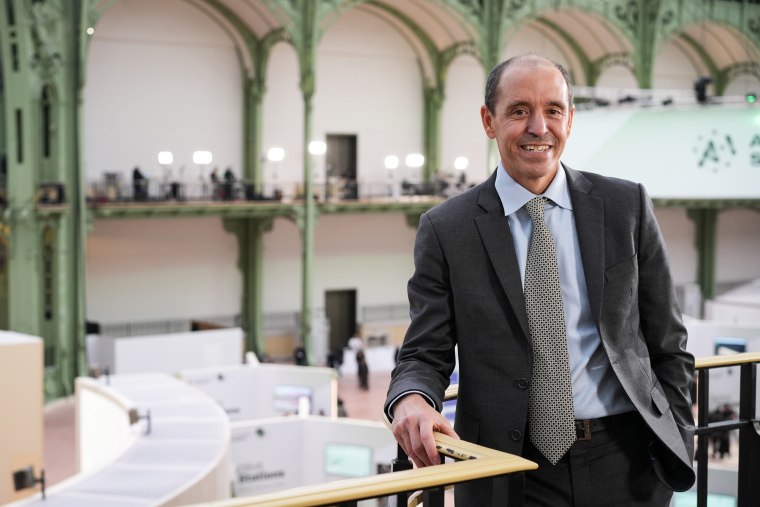 Chris Lehane, head of policy at Open AI Inc., at the AI Action Summit, in Paris, on Feb. 10.Nathan Laine / Bloomberg via Getty Images file
Chris Lehane, head of policy at Open AI Inc., at the AI Action Summit, in Paris, on Feb. 10.Nathan Laine / Bloomberg via Getty Images file
Encode, a nonprofit whose general counsel, Nathan Calvin, was recently subpoenaed by OpenAI, was a sponsor of the SB 53 legislation and also filed an amicus brief in Musk’s lawsuit against OpenAI.
In Friday’s first volley, Calvin wrote: “Why did OpenAI subpoena me? Encode has criticized OpenAI’s restructuring and worked on AI regulations, including SB 53.”
“I believe OpenAI used the pretext of their lawsuit against Elon Musk to intimidate their critics and imply that Elon is behind all of them.”
In response, OpenAI’s Kwon wrote: “When a third party inserts themselves into active litigation, they are subject to standard legal processes. We issued a subpoena to ensure transparency around their involvement and funding. This is a routine step in litigation, not a separate legal action against Nathan or Encode.”
Ray Seilie, a litigator at Kinsella Holley Iser Kump Steinsapir in Los Angeles, told NBC News that the subpoenas could have been much more demanding if they were really meant as an intimidation tactic.
Regarding Calvin and Encode, Seilie said: “If OpenAI had wanted to intimidate or harass him, they could have served him with a deposition subpoena, which would have required Calvin to sit down for a full day of questioning under oath by OpenAI’s lawyers in addition to providing documents.”
“The fact that OpenAI only asked for documents suggests that they were sincerely looking for connections between Musk and Encode, even if they turned out to be wrong about their suspicion.”
Former OpenAI employee, whistleblower and prominent AI policy researcher Daniel Kokotajlo said the pressure for critics to be silent can often be crushing, even in the absence of depositions or subpoenas. “I was super scared last year when I spoke up about OpenAI’s secret nondisparagement clause, even though objectively speaking I was in the right.”The clause forbade former employees from saying anything negative about the company or face losing their vested equity. OpenAI rescinded the policy shortly after Kokotajlo came forward.
“When it’s actually happening to you in real life, the psychological pressure to just stay quiet is pretty darn strong and most people cave to it,” Kokotajlo told NBC News. “That’s why intimidation tactics work.”

